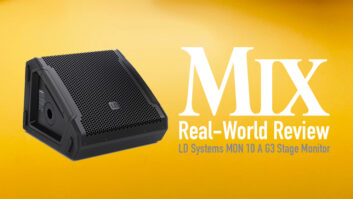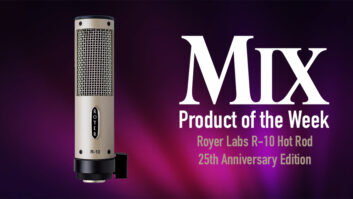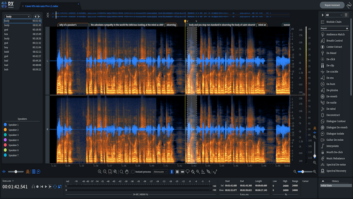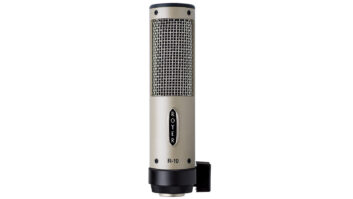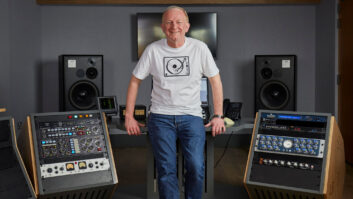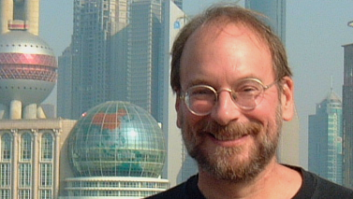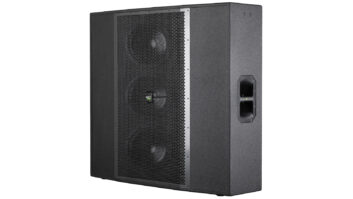NEW YORK, NY—Location is everything in real estate. So when Dave Kutch found a suitable building for his Mastering Palace in 2007 in an area of New York City not previously known for its studio facilities, he called his friend Guy Routte for his opinion. “He said, ‘You were also considering Long Island City. But nobody is looking for an excuse to go to Queens; everybody is looking for an excuse to go to Harlem.’ He verbalized it perfectly,” says Kutch.
Mastering Palace will mark its 10-year anniversary in November. But the business existed long before Kutch’s realtor found the former firehouse on Harlem’s West 121st Street.
“I had been planning the Mastering Palace for years,” he says. “I had already incorporated the name and was collecting bits of gear, wiring; anything I could get my hands on.”
Kutch had come up through a variety of studios, including working as an assistant engineer for the late Ed Germano at The Hit Factory, and he had seen that facility close to make way for condos. “The handwriting was on the wall for the big studios. I went to Sony, knowing that one day they would close and I would buy all my gear for pennies on the dollar. And that day came.”
Kutch had collaborated with Alicia Keys years earlier, and later brokered her purchase of the Long Island studio where he first interned. “The day Sony shut down, I was out there working on As I Am,” Keys’ third album, released in 2007.
“She gave me housing for the Mastering Palace for almost four months. I will always be grateful to her for that,” he says. “I was building Mastering Palace on a laptop, in her live room, as a business, FedEx accounts and everything. I was also working with my other clients at the same time. And in the mornings, I would run all over the city with a real estate agent.”
Kutch had been invited to Keys’ Oven Studio at a time when artists and labels were deeply concerned about pre-release leaks. “The idea was to have mixing, mastering and the finishing of tracking all in one house. The music never leaves, the record company doesn’t get anything prematurely and everybody can sign off on each other’s work. It was an awesome collaborative atmosphere.”
Having already launched his business, Kutch walked into his new location “60, 70 percent prepared,” he says. It wasn’t easy: “I physically built the first room myself, while I was trying to work. That was an exhausting experience.”
But within six months, the company was in the black, he reports. “Erykah Badu was here, The Roots, John Legend, Alicia. It’s grown progressively since then. Everything happened naturally in time when I, as a business owner, was ready for the next engineer, for another employee, for a second room.”
Kutch added that second room in 2015. “It was designed by Martin Pilschner, out of Toronto. He does incredible rooms.”
He brought mastering engineer Tatsuya Sato on-board to work in the new room. “His relationship with Q-Tip allowed him the opportunity to master the Tribe Called Quest album. They were already with another mastering engineer. Tats said, ‘Send me one song.’ He nailed it; in the eleventh hour, they had him remaster the entire album. I was incredibly happy for him.”
The engineering team also includes former assistant to Sony’s Vlado Meller, Mark Santangelo, whose credits include Metallica and Slipknot. “Mark also does my vinyl cutting, whenever any of my clients need it,” Kutch says. Kutch’s assistant, Kevin Peterson, has also been branching out, mastering Tinashe’s Nightride album last year.
Kutch’s console offers both analog and digital choices. “I had to stay hybrid. When I tried to make the transition, I couldn’t do it. There are times now when I can work strictly in-the-box. But still, that little bit of analog always feels nice.”
But there is only one choice of speaker, he says. “I use strictly Focal monitors for all my listening—a broad variety, depending upon which room.” For processing, “I have the Dangerous Bax EQ—the bottom frequency is amazing—as well as Manley, API, old Neumann and a couple of customized pieces. As far as in-the-box, in the past three or four years, software and plug-in architecture and development has finally matured to match some of the best pieces of analog gear, and that also gives you some things that the analog gear could never do.”
His toy box is well stocked with plug-ins. “Some are flat and neutral, some have color—it depends what I’m looking for—but all the major manufacturers are making really good sounding toys.”
To celebrate Mastering Palace’s 10-year milestone, Kutch says he will be donating all profits during November to charity. “One will be for getting instruments into kids’ hands. And the other half will be to women’s cancer research. My mother passed of ovarian cancer in November, 14, 15 years ago, so it’s a significant month.”
Last year, two album projects he mastered—Beyoncé’s Lemonade and Chance the Rapper’s Coloring Book—were nominated for a total of 14 Grammy Awards. But Kutch has no immediate plans to take on the New York real estate market, he says.
“I’m happy with the footprint that I’m at. I’ve been very fortunate that the music industry, Harlem and hip-hop have been very good to me.”
The Mastering Palace
themasteringpalace.com
Focal
focal.com
Dangerous Music
dangerousmusic.com
